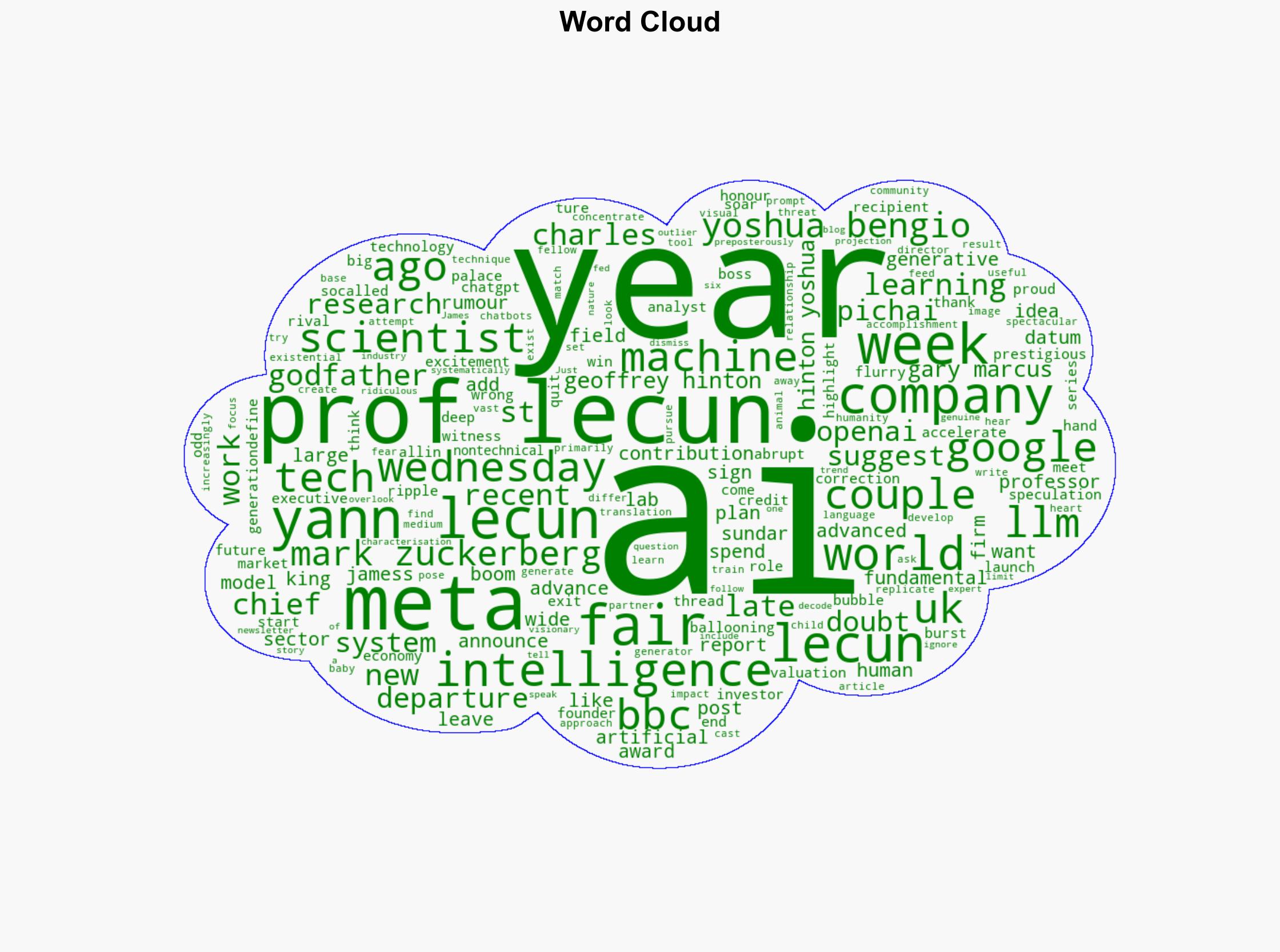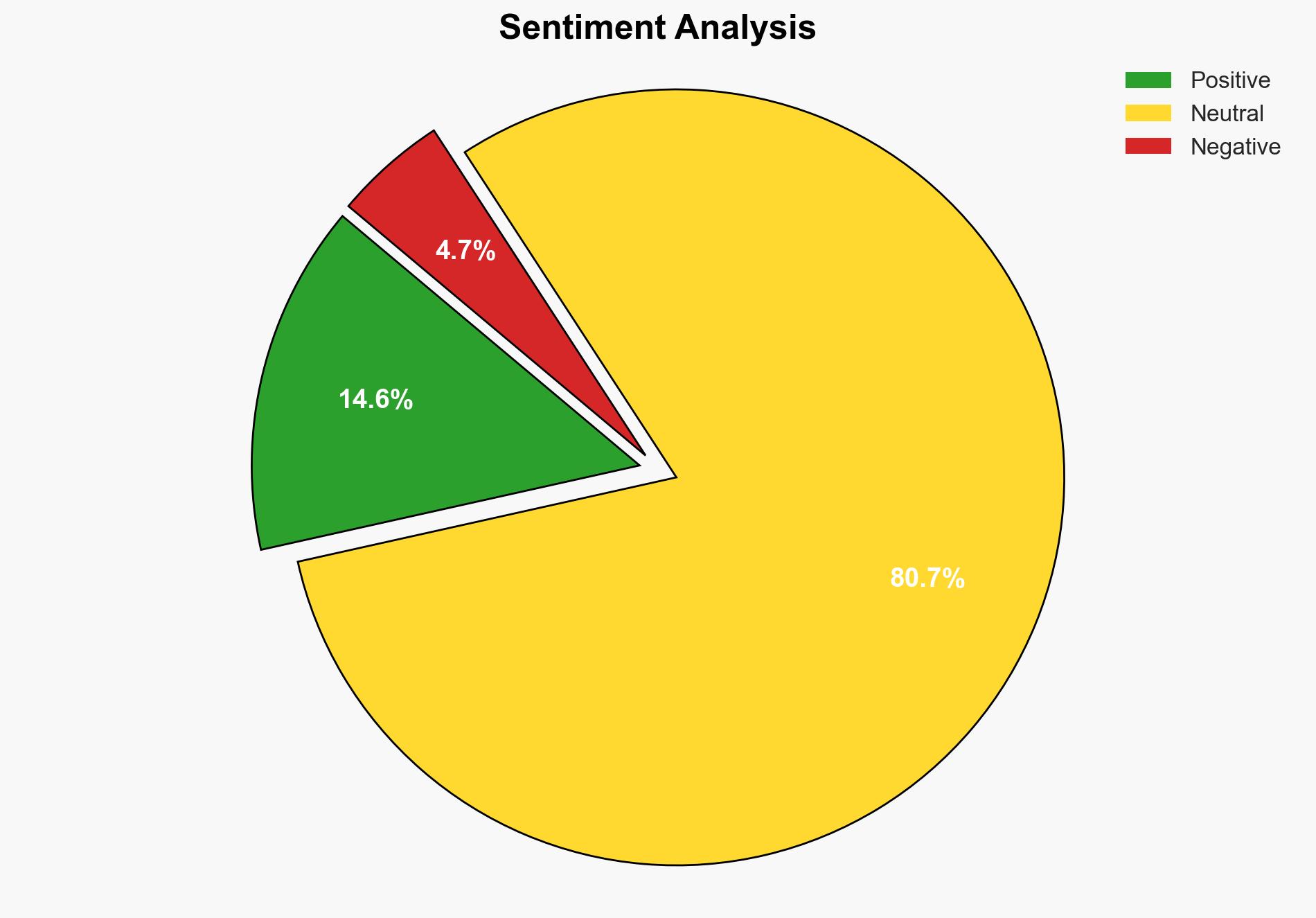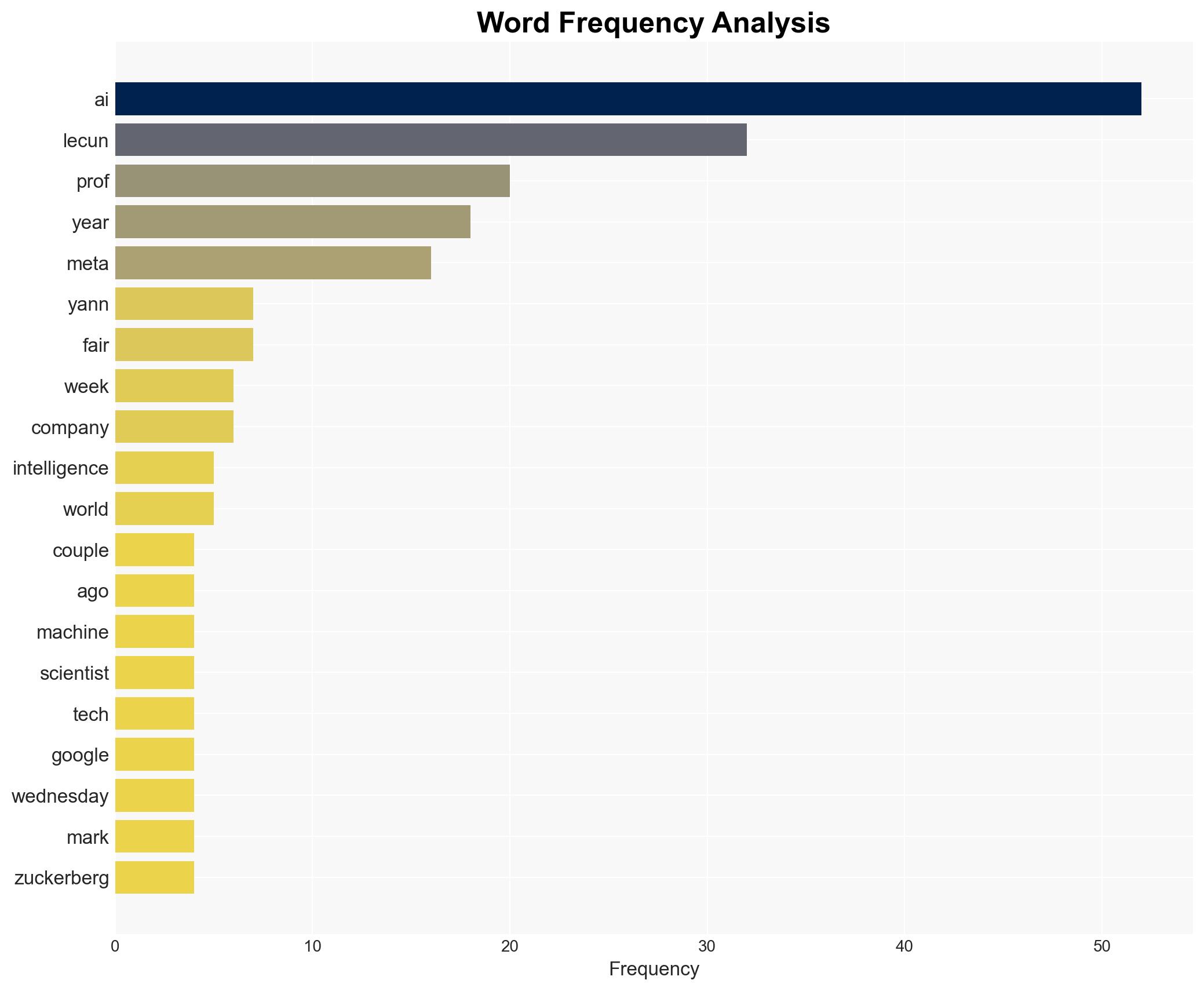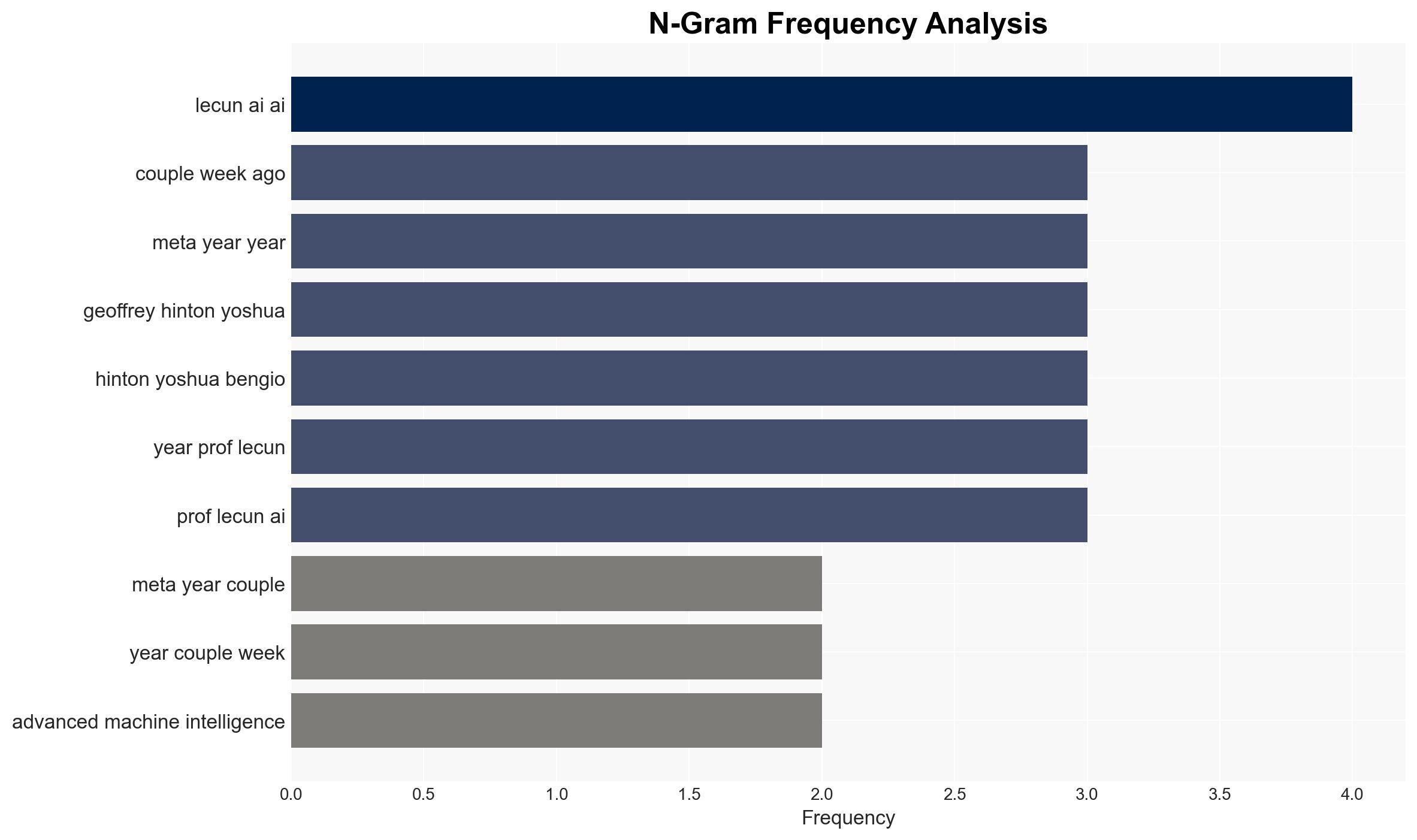Why an AI ‘godfather’ is leaving Meta after 12 years – BBC News
Published on: 2025-11-20
AI-powered OSINT brief from verified open sources. Automated NLP signal extraction with human verification. See our Methodology and Why WorldWideWatchers.
Intelligence Report:
1. BLUF (Bottom Line Up Front)
Yann LeCun’s departure from Meta to start a new firm is most likely driven by a desire to pursue advanced machine intelligence research outside the constraints of large corporate structures. This move may signal a shift in AI research focus and priorities. Confidence Level: Moderate. Recommended action: Monitor developments in LeCun’s new venture and potential impacts on AI research directions.
2. Competing Hypotheses
Hypothesis 1: Yann LeCun is leaving Meta to pursue advanced machine intelligence research that aligns more closely with his personal vision, which may not fully align with Meta’s current strategic focus on large language models (LLMs).
Hypothesis 2: LeCun’s departure is a strategic move to distance himself from potential risks associated with the AI bubble and to capitalize on new opportunities in the AI sector independently.
Assessment: Hypothesis 1 is more likely given LeCun’s expressed interest in developing AI systems that emulate human learning processes, which may not align with Meta’s current focus. Hypothesis 2 is plausible but less supported by available evidence.
3. Key Assumptions and Red Flags
Assumptions: It is assumed that LeCun’s departure is voluntary and not influenced by internal Meta dynamics or external pressures. It is also assumed that his new venture will focus on advanced machine intelligence as stated.
Red Flags: Potential bias in interpreting LeCun’s motivations based on public statements. Lack of detailed information on the strategic direction of LeCun’s new firm.
4. Implications and Strategic Risks
The departure of a key figure like LeCun from Meta could lead to shifts in AI research priorities and talent dynamics. If LeCun’s new venture succeeds, it may challenge existing AI paradigms and influence industry standards. Conversely, failure could impact investor confidence in AI innovation. The broader AI sector may experience volatility if perceived as overvalued or if significant figures express skepticism about current trends.
5. Recommendations and Outlook
- Monitor LeCun’s new venture for emerging technologies and research breakthroughs that could redefine AI capabilities.
- Encourage collaboration between established AI entities and new ventures to foster innovation and mitigate risks of fragmentation.
- Best-case scenario: LeCun’s venture leads to significant advancements in AI, benefiting the broader industry.
- Worst-case scenario: The venture fails, leading to skepticism about AI innovation and potential market corrections.
- Most-likely scenario: LeCun’s venture progresses steadily, influencing AI research directions without immediate disruptive impacts.
6. Key Individuals and Entities
Yann LeCun, Mark Zuckerberg, Geoffrey Hinton, Yoshua Bengio, Sundar Pichai, Gary Marcus.
7. Thematic Tags
Structured Analytic Techniques Applied
- Adversarial Threat Simulation: Model and simulate actions of cyber adversaries to anticipate vulnerabilities and improve resilience.
- Indicators Development: Detect and monitor behavioral or technical anomalies across systems for early threat detection.
- Bayesian Scenario Modeling: Quantify uncertainty and predict cyberattack pathways using probabilistic inference.
Explore more:
Cybersecurity Briefs ·
Daily Summary ·
Support us





